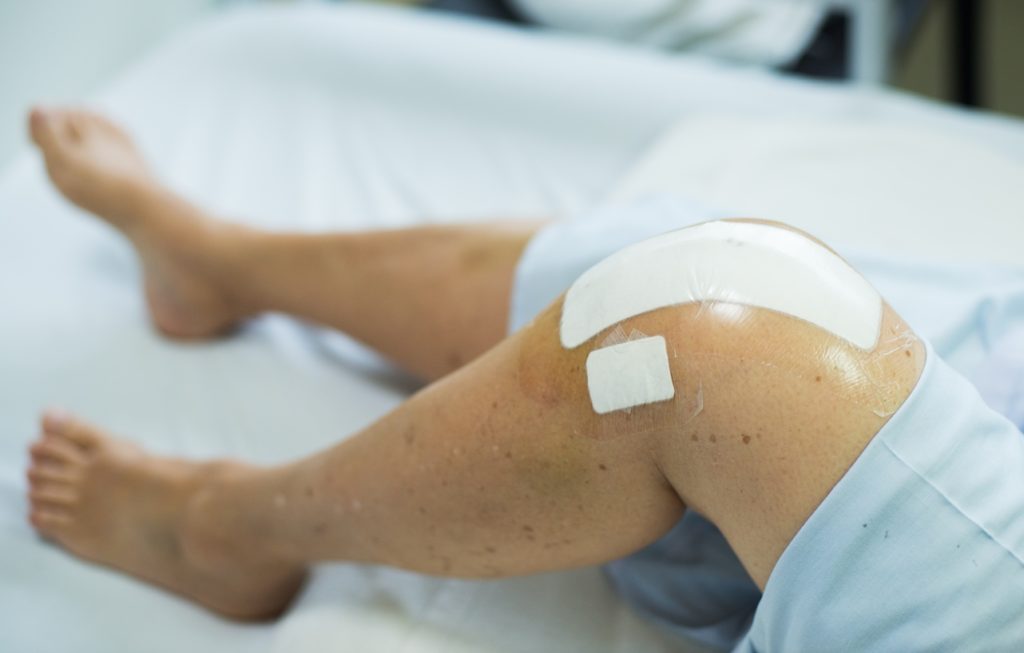Oxford has one of the largest multidisciplinary musculoskeletal science centres in the world, and over the last 20 years, our trials have changed clinical practice and informed many UK and international regulatory guidelines.
The work of our theme can broadly be divided into two main clinical areas: acute care and planned care, with a strong emphasis on the care pathway seen from the perspective of the patient. All of our patient-facing studies are co-produced with our patient partner groups, who are representative of the populations we aim to help.
The Musculoskeletal (MSK) Acute Care sub-theme, led by Professor Matthew Costa, follows patients through pre-hospital, emergency department, trauma inpatients and back into the community through rehabilitation, with strong guidance from our MSK Trauma patient and public involvement and engagement (PPIE) group.

The MSK Planned Care sub-theme, led by Professor Laura Coates, is researching referral pathways into and out of secondary care, integrating surgical, medical and rehabilitation interventions with community services. Our researchers work closely with the new Open Arms PPIE group.
These two clinical sub-themes are supported by three cross-cutting, methodological sub-themes:
- The Clinical trials and Technology Appraisal sub-theme, led by Professor David Beard, is using cutting-edge trials methodology to evaluate new devices and surgical interventions.
- The MSK Big Data sub-theme, headed by Professor Daniel Prieto-Alhambra, uses routine and registry data to explore new ways to identify and treat MSK disease.
- The Biomaterials and drug delivery sub-theme, led by Professor Eleanor Stride, is bringing novel biomaterial interventions into clinical use and testing new drug delivery systems to benefit patients with musculoskeletal diseases.
Our researchers are using our expertise in inflammation, genetics and epigenetics – often working with other BRC themes and charities like Versus Arthritis – to identify new molecular targets and testing the efficacy of drugs.
Alongside this, we are seeking to improve care pathways for our patients and developing evidence-based strategies for the referral and management of patients with osteo- and inflammatory arthritis that we hope will translate into national and international recommendations.
Patients tell us that visiting the hospital for follow-up can be very difficult after they have broken a bone. For patients with a fracture of their wrist, we are testing new ways to support the broken bones to reduce the number of visits patients need to make to the hospital. We are also doing trials to see if online support materials provide the same outcomes for patients in their rehabilitation after a fracture of the ankle. If it does, this will also save the patient from having to travel to the hospital for physiotherapy.
Our diagnostic work will focus on developing new tests to guide precision medicine, for example through the OPTIMISE study, which aims achieve earlier diagnosis for patients with Psoriatic arthritis.
Older patients who suffer a fracture of their hip are particularly at risk of developing delirium. We have repurposed drugs to treat delirium in patients undergoing emergency surgery, which was a top priority for patient groups.
We have a track record in innovative engineering and drug delivery that produces tangible improvements in the quality of life of our patients. One such is our development of the Oxford Knee, which has been used more than a million times worldwide.
Our ability to develop innovative treatments for MSK conditions has been boosted by the expansion of the Botnar Institute for Musculoskeletal Sciences, which will facilitate our work into innovations that will reduce the need for long-term use of antibiotics, including biomimetic sutures (using materials that mimic biological functions to improve recovery from surgery); systems to help deliver oxygen to joints and reduce the risk of hypoxia (lack of oxygen); and nanoparticles that can penetrate biofilm (formed by microorganisms like bacteria) and treat joint infections, an initiative developed as part of an antimicrobial therapy programme funded by the Engineering and Physical Sciences Research Council.
transform the lives of patients suffering with musculoskeletal conditions
We are stepping up our early-phase trials capability through the development of the Centre for Clinical Therapeutics, testing new drug interventions to improve outcomes for patients with MSK disease.
We are also developing our research into Robotic Assisted Surgery, and our global reputation for placebo-controlled surgical trial design.
We are extending our training for surgeons across the country to ensure that our trials provide opportunities for patients all over the country to take part in research.
We are also augmenting our expertise in bioinformatics and data science through international collaborations and partnerships with industry, as well as expand our work with the University of Oxford’s Big Data Institute. This will allow us to use large routine health data to evaluate the effectiveness of different medicines and implantable devices in managing musculoskeletal conditions in the NHS.
This data analysis also allows us to develop algorithms to target those patients whose conditions are most at risk of progressing and who are likely to benefit from early therapies, for example in inflammatory joint disease.
We host the EQUATOR network through the Centre for Statistics in Medicine, which is an important element of our research into clinical trial design, conduct and reporting of statistics. We are working closely with other Oxford BRC themes: Surgical Innovation Technology and Evaluation, Inflammation Across Tissues, Genomic Medicine and Translational Data Science.